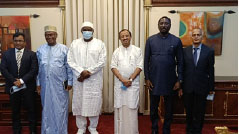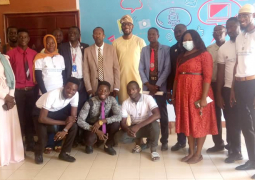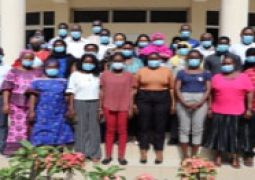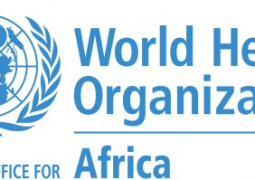
He also talked about the purpose of his visit, Education, Climate Change, Trade and Agriculture among others.
Below reads the full text of the exclusive interview:
Thank you Mr. V. Muraleedharan, the Indian Minister of State for External Affairs and Minister of State for Parliamentary Affairs. Welcome to The Gambia.
The Point: Could you please kindly tell us the purpose of your visit to The Gambia?
Muraleedharan: The purpose of my visit is to maintain the momentum in the exchange of high level bilateral visits and continue to work to deepen and widen bilateral relations. You would recall that in July-August 2019, Hon’ble President of India, Mr. Ram Nath Kovind paid the first ever State Visit to The Gambia. Earlier in March 2019, The Gambian Minister of Foreign Affairs Dr. Tangara had visited India in the context of 10th Anniversary of establishment of the Gambian High Commission in New Delhi. My present visit is to review the progress achieved on various action points emanating from the historic visit of our President to The Gambia and to take forward our relations to the next level.
The Point: The relations between India and The Gambia are moving from strength to strength, what can the two countries do to strengthen these bilateral ties to a special level?
Muraleedharan: India and The Gambia share warm, cordial and friendly relations. We closely collaborate in the multilateral arena. On the occasion of the 150th year celebration of Mahatma Gandhi, President of the Gambia H.E. Adama Barrow wrote an article on “what Gandhi means to me” for the Gandhi Anthology.
India has extended eight lines of credit for various developmental projects in The Gambia including construction of the National Assembly building in Banjul; supply of agricultural implements; electrification of the Greater Banjul area; etc. In the area of capacity building, a large number of diplomats and senior civil servants have undergone training in India under Indian Technical and Economic Coperation (ITEC) Programme.
We collaborate closely in the healthcare sector and India had supplied large amount of medicines to fight against the Covid-19 pandemic.
In terms of the way forward, through our deliberations, we will not only consolidate the existing collaboration but look for new avenues. I see potential in all the areas of our collaboration including political, defence and security, trade and economy, development partnership and people to people relations. I notice multiple sectors that hold potential like agricultural equipment and implements, electrical and mechanical machinery, food processing, energy, solar, oil and gas, eGovernance, Fintech, smart transport and telecom etc.
The Point: The data for the trade volume between the two countries is encouraging in recent times considering the Gambia’s size – is there any hope of improvement in this area?
Muraleedharan: There is always scope. India’s Duty Free Tariff Preference Scheme could be put to good use by the Gambian exporters given zero or marginal tariff applicable to almost 99% percent of the items exported to India. It is important to have regular visits of business delegations from both sides to each other countries for participating in seminars, trade fairs and exhibitions etc.
With the pandemic receding and global economy rebounding, we are optimistic that the trade volume both global as also between the two countries will rise substantially.
The Point: India being one of the fastest developing countries in the world and the fact that the country’s pace of development is unprecedented, what can Africa, The Gambia in particular learn from India in this aspect?
Muraleedharan: Growth, prosperity and development of a nation is a collective effort of all the citizens. Africa blessed with its vast natural resources and a youthful population is expected to be the engine of global economic growth in the future. We share our success stories and achievements with our partner countries so that our partner countries in Africa including The Gambia can have a similar success growth stories. A case in point is our use of ICT to take developmental benefits and government schemes to the doorsteps of all in the country including in remotest corners and inaccessible terrains. Our mantra, as Prime Minister Shri Narendra Modi succinctly puts it is ‘together with all, for the development of all, with the trust and efforts of all’.
The Point: Cotton industry in The Gambia used to be very productive. Is there any way in which the two countries can cooperate to ensure Gambia resuscitates this industry to enhance the creation of more employment for the young people in the industry?
Muraleedharan: Our training programs, information sharing and skill upgradations are available for related experts from The Gambia. We will be happy to share our experience if found beneficial by The Gambia. India would be happy to consider any proposal for assistance in reviving Gambia’s cotton industry in terms of technical assistance in cotton production and processing.
The Point: How about the area of Tourism! Can the two countries make headway in the Tourism Sector?
Muraleedharan: Tourism is an important pillar of our economies. We would certainly encourage two way flow of tourists as the travel eases with increasing Covid-19 vaccination. We must also collaborate in the hospitality industry including through online roadshows, training sessions and experience sharing with a view to enhancing productivity and income of those working in this sector.
In addition, India offers world class quality medical facilities, with state of the art hospitals and finest medical experts at affordable cost. Further, the availability of Ayurveda and Naturopathy in the purest form makes India the most sought after health tourism destination. I therefore, suggest that Gambian nationals could avail Indian health tourism facilities as India has eased out COVID related restrictions to travel to India.
The Point: On Education, India has annually been offering scholarships to so many Gambians, in future could we anticipate a greater number of scholarships for Gambian than how things are now?
Muraleedharan: Both in absolute terms and particularly on per capita basis, our scholarship slots are very high for The Gambia, commensurate with robust bilateral relations.
India ranks among the top five destinations for African students for higher education and around 25,000 Africans students are currently studying in India. ‘Study in India’ programme which is offering a large number of slots in the premier institutes on self-financing basis as well as merit-based scholarships. We have received unprecedented number of approvals for The Gambian students in the current academic year under this scheme and I see huge potential. The online learning or distance learning is the way forward. Under the e-Vidya Bharati network project (Tele-education), the Government of India has announced 15,000 scholarships for students and professionals in Africa to pursue courses offered by premier Indian institutions in the emerging areas. I am glad to note that a large number of Gambian students are taking advantage of this facility. And of course, India will continue to offer fully funded ICCR scholarships to the Gambian students. Overall, the number of Gambians studying in India is rapidly increasing and I presume this upward trend will continue in the times to come.
The Point: On climate change, since India is advancing technologically, has the country made any global commitment to cut down its emission as part of its global commitment?
Muraleedharan: India is at the forefront with respect to its policies on climate change mitigation and adaptation. The Government of India is continuously increasing the share of renewable energy in its energy mix and at COP26, PM Modi announced that India will meet 50% of its energy requirement from renewable energy by 2030. PM also announced that India will reduce the carbon intensity of its economy to less than 45 percent and by the year 2070, India will achieve the target of Net Zero.
India is running the world’s largest clean energy programme to achieve 175 GW of renewable capacity (including 100GW of solar power) by 2022 and 500 GW by 2030. As of 2020, India was the world’s 3rd largest renewable energy producer with 38% (136 GW out of 373 GW) of total installed renewable energy capacity. As part of its commitment to climate change mitigation, India spearheaded the International Solar Alliance (ISA) which is now an alliance of 121 countries including The Gambia.
The Point: Finally, India and The Gambia having both been members of the Commonwealth, are there plans for India to finally open a High Commission (embassy) in The Gambia?
Muraleedharan: Our Embassy in Dakar and The Gambian High Commission in New Delhi are closely working to ensure all round development of bilateral relations. That said, we would certainly like to open a resident Indian Mission in Banjul in due course.
Read Other Articles In National News

NYC launches youth peace security situation room and online radio
Nov 26, 2021, 11:02 AM




